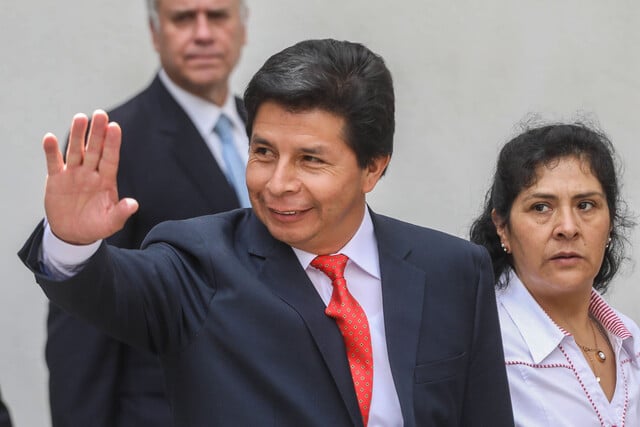
2022 warned of its complexity from the very beginning. In addition to the effects of the pandemic, the global recession, and inflation, the supply chain crisis, new factors were now being added: a war that had been a threat for years, rising autocracies, democracies at risk, and drug trafficking taking over territories. In scenarios such as these, leaders are needed who are up to the task and, in Latin America, the outlook has not been very encouraging.
Last December 7, Peruvians watched in astonishment as then-President Pedro Castillo announced the temporary closure of Congress and the establishment of an exceptional emergency government in the face of his imminent impeachment for corruption. It was an attempt at a self-coup without allies that was quickly disarmed by the Congress itself, which that same day invested Vice-President Dina Boluarte as president. While this calmed the waters momentarily, massive and violent protests erupted, leading Boluarte to decree a state of emergency and urge Congress to bring forward the elections. In the meantime, Castillo awaits behind bars what the justice system decides and his family is in an asylum in Mexico, which, by the way, has caused diplomatic problems between both countries.
One day before this failed self-coup attempt, the vice president of Argentina, Cristina Fernández, was sentenced to six years in prison and disqualified for life from holding public office, for a corruption case linked to the awarding of public works. A ruling that can still be appealed, but which had the unrestricted support of President Alberto Fernández, who assured the innocence of the former president and criticized the judges.
A not minor fact is that Castillo and Fernandez have received the support of the presidents of Mexico, Colombia, Bolivia, and Argentina. They signed a letter in support of Cristina Fernandez accusing judicial persecution and another missive expressing that they still recognize Castillo as president of Peru, assuring that he has been a “victim of anti-democratic harassment” since he took office.
In both cases, Latin American leaders are sending the wrong signal, preferring to defend their “friends” instead of condemning the facts. Political and ideological affinity does not mean the justification of any act. The minimum that is expected of our leaders is that they condemn corruption, and any anti-democratic event and set an example for society. Otherwise, how do we demand probity from citizens, how do we recover society’s trust in its authorities and institutions, and how do we strengthen democracy and the rule of law?
And if the above were not worrisome, look at what is happening in Central American countries, where freedoms are being restricted and human rights are being taken away. Daniel Ortega’s government in Nicaragua imprisoned his rivals and is now shutting down NGO, persecuting the Catholic Church, and curtailing freedom of the press. His counterpart in El Salvador, Nayib Bukele, installed a regime of exception more than eight months ago to combat gangs. The country’s inhabitants’ fear of criminals has diminished, while their fear of the power wielded by the police and the army has grown. And if we are talking about power, Bukele continues to aspire to more, announcing that he will run for reelection, even though the Constitution does not allow it.
In Brazil, the polarization that the country is experiencing after the elections gave Lula da Silva the victory, in which, in addition, disinformation prevailed. Bolsonaro’s supporters protested and blocked accesses, and even the Superior Electoral Court fined his party for questioning the result of the election.
And in Mexico, President López Obrador has been questioned for some turns and controversial reforms, among them, the one that seeks to modify the Mexican electoral body, which according to his opponents threatens the independence of that institution; or the so-called “militarization” that he is carrying out, after achieving the approval in Congress of the transfer of the National Guard from a civilian command to the Secretariat of National Defense, in addition to the announcement of the creation of an army airline.
Chile has not been left behind in this convulsed scenario, especially after the rejection of the proposal for a new Constitution, and the subsequent search for agreements, where quarrels and petty politics have prevailed, only deepening distrust and boredom on the part of the citizens.
And a cross-cutting issue that involves the entire region is the advance of drug trafficking and organized crime. New ports as protagonists for the passage of drugs and new ways of operating, which have increased the fear and insecurity of Latin Americans. The consequences go beyond that since crimes such as money laundering are more latent than ever and any of us can be targeted by criminals who need to launder money through the private sector.
The concerns are many and diverse and, to address them, we need our leaders to act as united as when defending a political friend. We are the greatest force to demand that our leaders act now, and address all these problems before it is too late.
By Susana Sierra
Column published in El Mostrador










